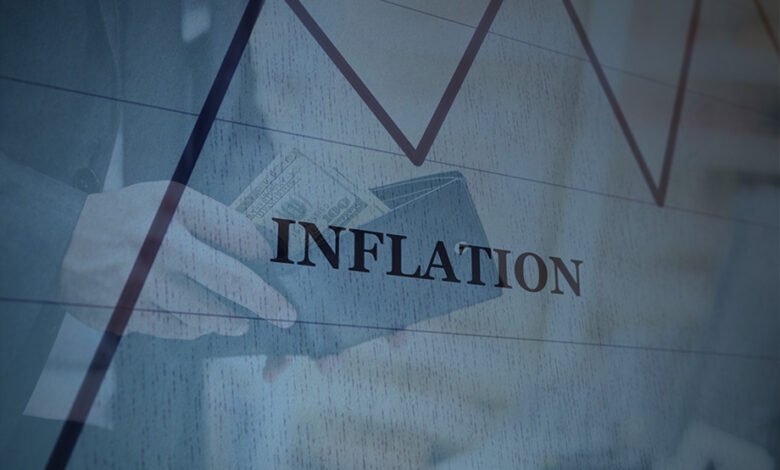ECONOMY
-

The Post-Pandemic Global R* – Liberty Street Economics
Marco Del Negro, Elena Elbarmi, and Michael Pham In this post we provide a measure of “global” r* using data on short- and long-term yields and inflation for several countries with the approach developed in “Global Trends in Interest Rates” (Del Negro, Giannone, Giannoni, and Tambalotti). After declining significantly from the 1990s to before the COVID-19 pandemic, global r* has…
Read More » -

Seeing Through the Shutdown’s Missing Inflation Data
Martin Almuzara and Geert Mesters Data releases for inflation have been scarce over the past four months due to the government shutdown. As a result, until January 22 no personal consumer expenditures (PCE) data were available beyond September and the consumer price index (CPI) had many missing entries for the one-month changes for October and November. In this post, we…
Read More » -

What Workplace Composition Are Job Candidates Looking For?
Rachel Schuh Why do workers still segregate by sex across occupations, industries, and firms? Recent research has focused on how preferences for job amenities, like flexibility, may differ by sex. However, one “amenity” that has received relatively little attention is the sex composition of a job itself. In a recent paper, I conducted a survey experiment to estimate men’s and…
Read More » -

New York Fed EHIs Reveal Small Business Struggles
Will Aarons and Asani Sarkar The New York Fed’s Economic Heterogeneity Indicators (EHIs) aim to study macroeconomic outcomes experienced by various groups of people and businesses. We recently added a suite of indicators describing the performance of small businesses to the EHIs—both for the region (defined, for the purpose of this study, as New York, New Jersey, and Connecticut) and nationally. Small businesses are critical to employment…
Read More » -

Who Is Paying for the 2025 U.S. Tariffs?
Mary Amiti, Chris Flanagan, Sebastian Heise, and David E. Weinstein Over the course of 2025, the average tariff rate on U.S. imports increased from 2.6 to 13 percent. In this blog post, we ask how much of the tariffs were paid by the U.S., using import data through November 2025. We find that nearly 90 percent of the tariffs’ economic burden fell…
Read More » -

Where Are Mortgage Delinquencies Rising the Most?
Andrew F. Haughwout, Donghoon Lee, Daniel Mangrum, Joelle W. Scally, and Wilbert van der Klaauw The Federal Reserve Bank of New York’s Center for Microeconomic Data recently released its Quarterly Report on Household Debt and Credit for the fourth quarter of 2025, revealing continued growth in household debt balances. Aggregate household debt balances rose by $191 billion to reach $18.8 trillion, marking…
Read More » -

Does the Phillips Curve Steepen When Costs Surge?
Simone Lenzu Inflation does not always respond to cost and demand pressures in the same way. When shocks are small, the mapping from costs to prices is roughly proportional—double the shock, double the inflation response. But when the economy is hit by large shocks, this proportionality breaks down. As the recent surge and subsequent decline of global inflation showed, price…
Read More » -

Anatomy (not Autopsy) of the Phillips Curve
Simone Lenzu The relationship between inflation and real economic activity has long been central to debates in macroeconomics and monetary policy. At the core of this debate is the Phillips curve (PC), which measures how strongly inflation reacts to movements in economic conditions. The steepness of this curve matters enormously for monetary policy: if the PC is steeper, inflation rises…
Read More » -

What Can Undermine a Carbon Tax?
Pierre Coster, Julian di Giovanni, and Isabelle Mejean Several countries have implemented a carbon tax or cap-and-trade system to establish high carbon prices and create a disincentive for the use of fossil fuels. Essentially, the tax encourages firms to substitute toward low carbon emission energy. Costs also rise for firms down the supply chain that use production inputs with high-emission…
Read More » -

Disability in the Labor Market: Employment and Participation
Rajashri Chakrabarti, Thu Pham, Beck Pierce, and Maxim L. Pinkovskiy Among people in prime working age (25-54), around 7 percent have a disability of some kind. In this set of companion posts, we will examine how prime-aged workers with disabilities have fared in the labor market compared to the year prior to the pandemic. In this first post, we will…
Read More »
